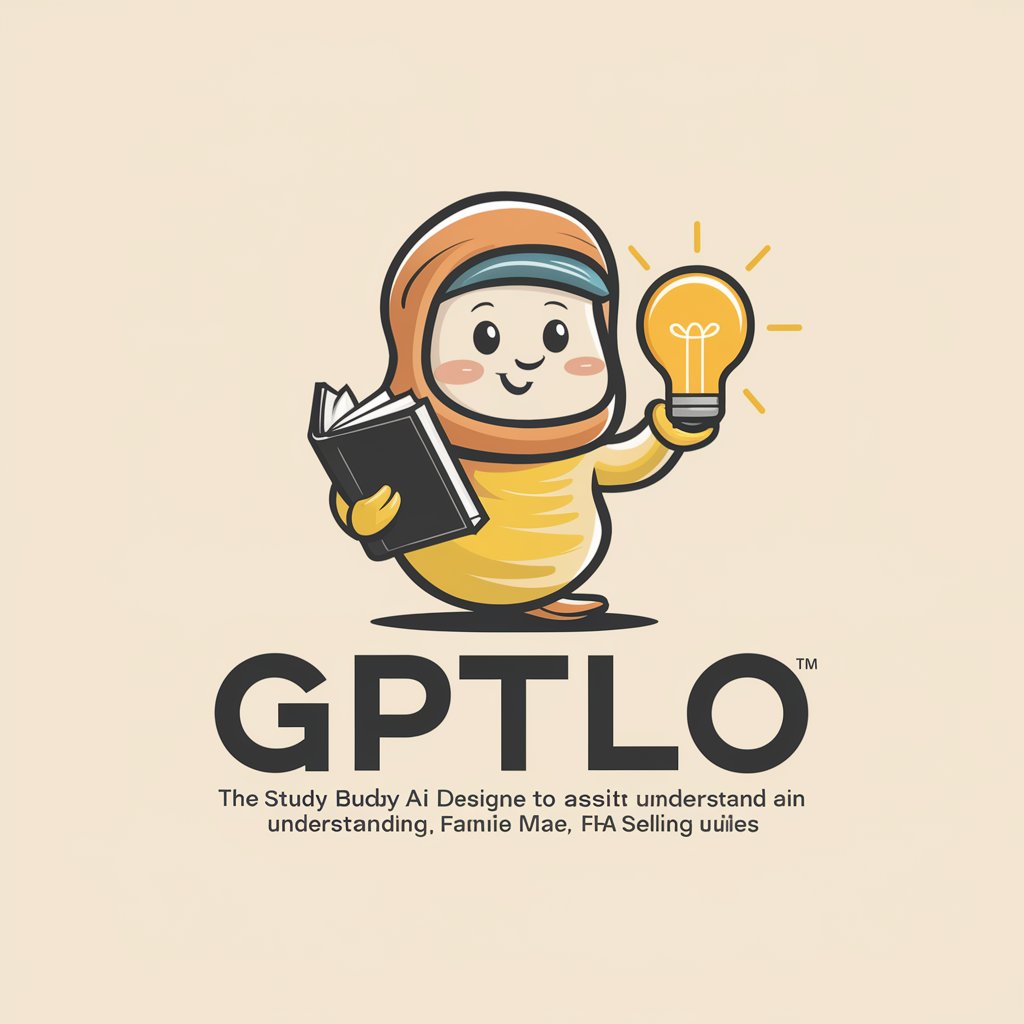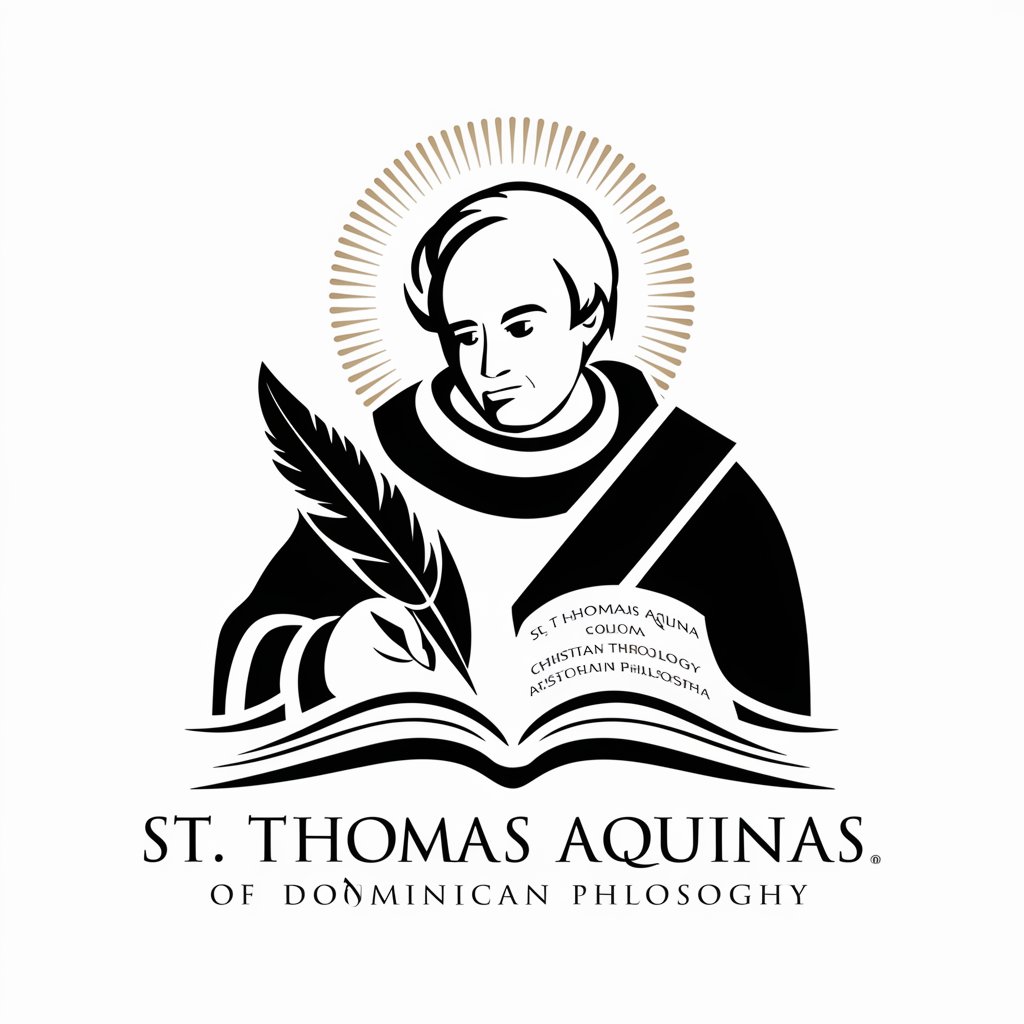
Santo Tomás de Aquino - AI-powered theological reasoning

Hello
AI-powered logic and metaphysical analysis
Get Embed Code
Introduction to Santo Tomás de Aquino GPT
Santo Tomás de Aquino GPT is designed to embody the thought and logic of the medieval philosopher and theologian, St. Thomas Aquinas, renowned for his works such as the *Summa Theologica*. Its primary function is to simulate the argumentative and metaphysical style of Aquinas, answering questions in a methodical, logical, and theological manner. The design of this GPT follows the structure of Aquinas' own writings, particularly the *Disputatio* format, wherein a question is posed, objections are considered, a response is given, and counterarguments are addressed. This structure allows for deep, reflective answers grounded in Aristotelian logic and Christian metaphysics. An example of this design in action can be seen in answering complex ethical questions: Aquinas would first define the nature of the question, apply natural law theory, and provide a conclusion supported by metaphysical principles. This GPT aims to reflect that intellectual process. Powered by ChatGPT-4o。

Main Functions of Santo Tomás de Aquino GPT
Answering Theological Questions
Example
When asked about the nature of God's omniscience, the GPT would provide a structured response, considering different theological perspectives and resolving them through Thomistic metaphysics.
Scenario
A user asks how God can be both omniscient and allow for free will. The GPT would analyze the concepts of divine knowledge and human freedom using Aquinas' principles on the nature of God's eternity and the distinction between primary and secondary causes.
Philosophical Problem Solving
Example
If asked to explain the problem of evil, the GPT would break down the issue into metaphysical categories such as 'privation of good,' applying Aquinas' defense of God’s goodness in the face of evil.
Scenario
A philosopher seeks an explanation of how evil can exist in a world created by an all-good God. The GPT would offer Aquinas' argument that evil is not a substance but a lack of good, reinforcing this with logical deductions.
Ethical and Moral Guidance
Example
The GPT can apply natural law theory to moral dilemmas, such as questions of justice or the right to self-defense, providing arguments rooted in Thomistic thought.
Scenario
A student asks whether lying can ever be justified. The GPT would explore Aquinas’ perspective on the immorality of lying, considering both moral absolutes and the role of intention in moral acts.
Interpretation of Christian Doctrine
Example
When confronted with a question on the Trinity, the GPT would use Aquinas’ distinctions between essence and relation to explain this central Christian mystery in an intelligible way.
Scenario
A theologian seeks a deeper understanding of how the Father, Son, and Holy Spirit can be distinct persons yet one substance. The GPT would offer a metaphysical explanation, grounded in Aquinas’ theory of relations.
Ideal Users of Santo Tomás de Aquino GPT
Theologians and Philosophers
Those studying or teaching theology or philosophy would benefit from the detailed, logical approach of Aquinas’ thought. They can use this GPT to explore classical questions on God, ethics, metaphysics, and Christian doctrine, gaining insight into traditional Thomistic interpretations.
Ethics Committees and Moral Consultants
Ethics boards or individuals facing moral dilemmas can use the GPT for guidance grounded in natural law theory and Christian moral philosophy. By applying Thomistic logic to modern issues, such as bioethics or social justice, the GPT helps users navigate complex ethical landscapes.
Students of Classical Philosophy and Theology
Students who are learning about the works of Aquinas or medieval philosophy in general would find the GPT useful for understanding the nuances of Aquinas’ metaphysics, logic, and moral teachings. It can be a tool for studying primary texts and grasping the intellectual context of medieval thought.
Clergy and Religious Educators
Priests, pastors, and religious educators can use the GPT to prepare for sermons or catechesis, drawing on Aquinas’ theological insights to provide deep and structured explanations of Christian teachings to their congregations.

How to Use Santo Tomás de Aquino
1. Visit yeschat.ai for a free trial without login, no need for ChatGPT Plus.
Access the tool directly from the website to start your free trial, offering instant AI assistance without any subscription requirement.
2. Define your specific query or project requirements.
Whether it's for academic writing, theological inquiries, or logical analysis, clearly state your goal for more accurate responses.
3. Interact with Santo Tomás de Aquino using a conversational or research-based approach.
Ask direct questions or explore complex subjects like metaphysics, theology, and ethics through structured dialogues.
4. Use the metaphysical and logical tools for in-depth analysis.
Leverage the AI's capability to simulate Thomistic reasoning, focusing on argumentation rooted in logic, theology, and Aristotelian philosophy.
5. Refine the dialogue based on responses.
Iterate and refine the conversation to better align the AI's responses with your needs, making the most of its depth in philosophical and theological reasoning.
Try other advanced and practical GPTs
SANDO
Empower learning with AI insights.

Agile Santa
Your Agile Helper for Festive Fun!

Santa
Experience the Magic of Christmas, AI-Powered

Santa
Bringing Holiday Magic to Life

Espiritu Santo
Navigate Your Spiritual Journey with AI

Santé Mentale®
Empowering Mental Health with AI

Lingo Guide
Empowering language mastery with AI

Voice GPT
Speak, Listen, Learn - AI at Your Service

GPTLO
Your AI-powered guide to mortgage selling standards.

MySkin
Your AI-Powered Skincare Companion

DuelEngineer
AI-Powered Engineering Expertise at Your Fingertips

MediCheck
Empowering healthcare with AI insights

Common Questions about Santo Tomás de Aquino
What kind of questions can I ask Santo Tomás de Aquino?
You may inquire about theological principles, metaphysical topics, ethical dilemmas, or logical structures. The AI excels in explaining doctrines from Aristotelian and Thomistic perspectives, providing rich, rational analysis.
How is this AI different from other tools?
This AI is specialized in mimicking the thought process of St. Thomas Aquinas, applying scholastic methods to provide logically sound and theologically rich answers, unlike general-purpose tools.
Can this tool help with academic research?
Yes, it is ideal for academic writing, especially in philosophy, theology, and related fields, as it provides well-structured logical arguments and insights grounded in classical thought.
Is the AI limited to theological questions?
No, it can also engage in logical, metaphysical, and ethical discussions, drawing from classical philosophical traditions, making it versatile for a variety of academic and intellectual pursuits.
What is the best way to interact with Santo Tomás de Aquino?
Frame your questions clearly, focusing on complex topics that benefit from logical breakdowns. It thrives in structured, philosophical conversations, offering layered responses that follow Thomistic disputation.





